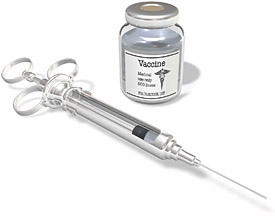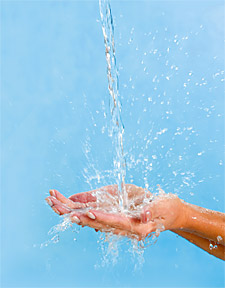Gingseng
Panax quinquefolium (ginseng) was studied in a large group of 323 patients as a preventive natural medicine. The group that took panax experienced 30 percent less colds compared with the placebo group (people who didn't take ginseng), and average number of sick days were 11 compared with 16 in the non-treatment group.
Oscillococcinum
Last, but not least, the well-known oscillococcinum is a homeopathic flu treatment that is created new every year. Tough to pronounce, but effective; a Cochrane review of all oscillococcinum studies showed that it reduces the length of illness compared with placebo.
There's a high likelihood that the flu and/or colds will affect your family every year. In most cases it's nothing more than an inconvenience, in some cases it can be deadly serious. Prevention and immune boosting is essential for everyone to ensure that when they do get sick, it is only a short and mild inconvenience. Trust in the power of natural medicine. Talk to your doctor for more information about these and other natural ways to boost your immune system and ward off colds and the flu.
 The Flu Vaccine: A Few Words of Caution
The Flu Vaccine: A Few Words of Caution
Flu vaccines are available on an annual basis, but concern should be taken for the following reasons:
- Flu vaccines contain thimerisol, a neurotoxic mercury preservative.
- Children with severe egg allergy should not get the vaccine.
- Children with Guillain-Barre syndrome should not get the vaccine.
- Young infants with low immune systems should not get the vaccine.
- Children with acute illness should not get the vaccine.
4 Healthy Habits
 Besides considering the natural immune boosters discussed in this article, the Centers for Disease Control and Prevention offers these common-sense tips for preventing cold/flu transmission. Yes, you've heard them before, but are you and your family practicing them or ignoring them - and paying the price?
Besides considering the natural immune boosters discussed in this article, the Centers for Disease Control and Prevention offers these common-sense tips for preventing cold/flu transmission. Yes, you've heard them before, but are you and your family practicing them or ignoring them - and paying the price?
Keep Your Distance. Avoid close contact with people who are sick, and when you are sick, keep your distance from others to protect them from getting sick. If you can, spend plenty of time in bed resting. A day off from work may save you (and the co-workers you could infect) substantially more time and inconvenience.
Cover Up. This seems easy, but how many people don't do it? Always cover your mouth and nose with a tissue when coughing or sneezing. If you feel a cough/sneeze coming on and do not have a tissue handy, cover your mouth/nose completely with your hands and then wash your hands immediately. If your hands aren't available, sneeze/cough into your sleeve; anything except the air, where your germs can be inhaled by those around you.
Stay Clean. Wash your hands frequently to minimize the chances that something (or someone) you've touched will get you sick. If soap and water aren't readily available, use an alcohol-based hand sanitizer, which is easy to carry with you in a purse, backpack, etc., when you're on the road. Again, sounds easy, but considering how many people don't wash their hands even after visiting the bathroom, we thought it deserved repeating.
Hands Off. Germs are often spread by touching something that is contaminated with germs and then touching the eyes, nose or mouth. If you're a "hands-on" type of person, keep in mind that you need to wash your hands frequently (particularly when in public places) or eventually, someone else's germs will become yours.
Jared Skowron, ND, teaches pediatrics at the University of Bridgeport and is a certified DAN (Defeat Autism Now) doctor. He is the author of Fundamentals of Naturopathic Pediatrics. Visit www.naturopathicanswer.com to learn more.

